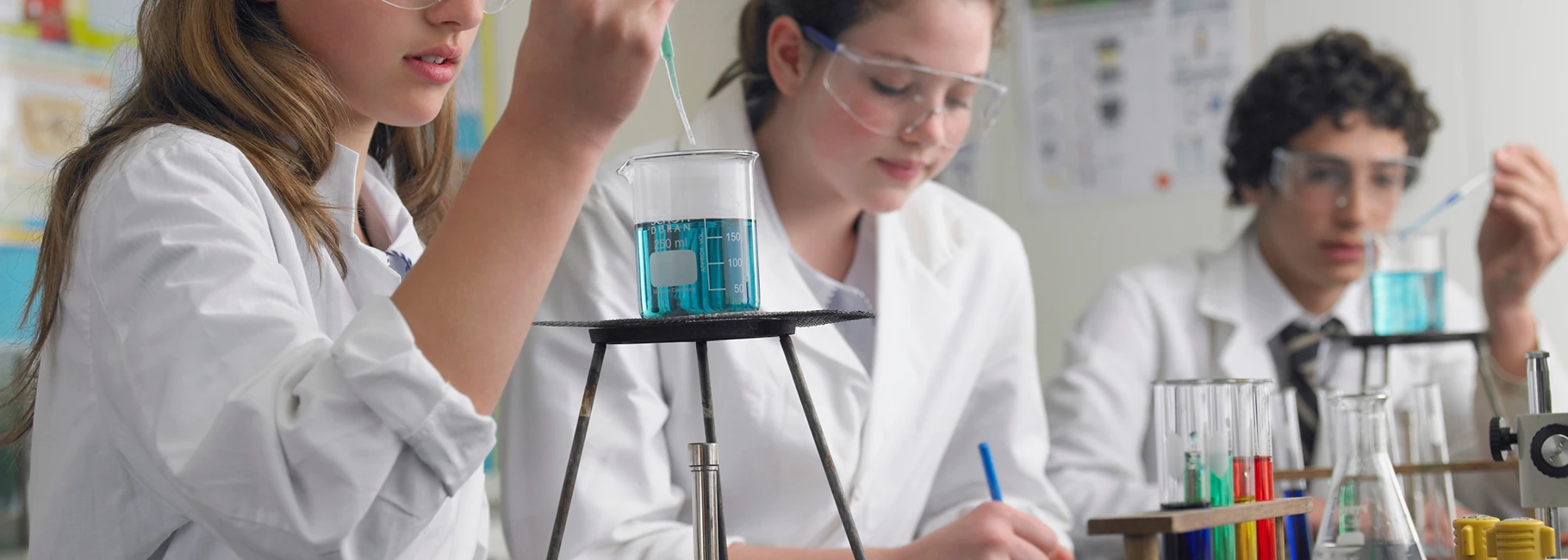By an IvyWise Master Tutor
The Science section on the ACT will be optional starting in April 2025. For students who want to take it, the key is knowing that the ACT Science section does not necessarily test the depth of your scientific knowledge but rather analytical skills in a scientific context.
What Is on the ACT Science Section Test?
In the description of the ACT Science section it’s stated that “advanced knowledge is not required.” It may be called the Science section, but actual scientific knowledge is not actually tested. So, what is tested? Here’s the content breakdown:
- Interpretation of Data (40-50%).
- Scientific Investigation (20-30%).
- Evaluation of Models, Inferences, and Experimental Results (25-35%).
The ACT Science section is all about applying basic scientific principles, and the answer will always be in front of you on the page — you just have to find it. This is important to keep in mind because students who don’t consider science their strongest subject can still do very well on the ACT Science section.
You will never find a question like this on the ACT:
What is the name of the cell process in which molecules of a solvent tend to pass through a semipermeable membrane from a less concentrated solution into a more concentrated one?
A) Apoptosis
B) Osmosis
C) Mitosis
D) Meiosis
This type of question may show up on your Honors Biology mid-term or AP Biology exam — but not on the ACT. Although you don’t have to know where your metacarpal bones are or what rules govern quantum mechanics, you will have to know some basic scientific concepts to help you navigate the questions and interpret data examples in the test section.
Like the ACT Reading section, the Science section takes practice! Many students find the ACT Science section difficult because they’re forced to apply reading and reasoning skills to scientific presentations of information. However, this is also the reason why performance on the science section is easy to improve — students can utilize the reading and reasoning skills they already developing for the Reading section to conquer the Science section. Practicing pacing strategies can also help students improve, as this section does tend to be heavy on passages and reading.
What “Science” Do You Need to Know?
As mentioned above, the ACT is an exam that tests quantitative and analytical skills more than memorized facts and is more focused on critical thinking and applied knowledge. In order to be comfortable applying analytical skills in a scientific context, it may be helpful to be familiar with various types of scientific graphs and charts, knowing units of measurement and perhaps basic terms from biology, chemistry, physics, and math (e.g., what is a cell, what does the freezing point of a substance mean, what is the concept behind momentum, etc.)
The key thing to remember is that the ACT Science section is about interpretation, not in-depth knowledge. Rather than reviewing all the biology, chemistry, and physics notes from high school, you may find it more helpful to understand the terminology and aspects of scientific experimentation that are generally universal.
Hypothesis
A hypothesis is a proposed explanation for a phenomenon or a prediction about the relationship between variables. It is a foundational element in the scientific method, serving as a starting point for investigation. A hypothesis should be testable and falsifiable, meaning it can be supported or refuted through experimentation or observation.
Variable
In science, a variable is any factor, trait, or condition that can exist in differing amounts or types. Variables are typically classified into three types:
- Independent variable: The variable that is changed or controlled in a scientific experiment to test its effects on the dependent variable.
- Dependent variable: The variable being tested and measured in an experiment.
- Controlled variable: The variables that are kept constant to ensure that the effect of the independent variable can be measured accurately.
Control
A control (or control group) is a standard of comparison for checking or verifying the results of an experiment. The main purpose of a control is to provide a reliable baseline data set to compare with the experimental results, helping to validate the experiment’s findings.
Correlation
Correlation refers to a statistical relationship between two variables. When two variables are correlated, changes in one variable are associated with changes in the other.
Causation
Causation refers to the relationship between two events where one event (the cause) directly results in the occurrence of the other event (the effect). In other words, causation implies that changes in one variable bring about changes in another variable. It’s important to remember, however, that correlation does not imply causation.
The Scientific Method
The scientific method is a systematic, logical approach used by scientists to explore observations, answer questions, and test hypotheses. It often involves repeating steps, refining hypotheses, and conducting further experiments to deepen understanding.
Steps of the Scientific Method:
- Ask a question.
- Do background research.
- Construct a hypothesis.
- Test your hypothesis by doing an experiment.
- Analyze your data and draw a conclusion.
- Communicate your results.
Experimentation
Experimentation is a test under controlled conditions that is made to demonstrate a known truth, to examine the validity of a hypothesis, or to determine the efficacy of something previously untried.
How Can I Improve My Performance on the ACT?
The bottom line is that it is possible to still do well on the Science section of the ACT without being a science whiz. The focus of your test prep for the ACT Science section should be more on improving the analytical and critical thinking skills required to answer the questions with an understanding of basic scientific concepts.
Struggling with improving your performance on the SAT or ACT? At IvyWise, we work with students to help them identify areas of improvement and develop skills that will help them reach their goal scores for these college entrance exams. Contact us today for more information on our tutoring and test prep services for the ACT and SAT.




